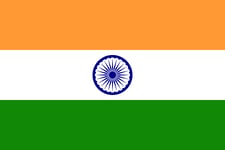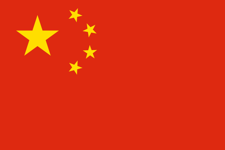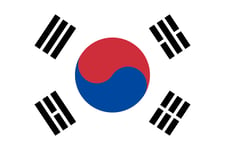
Here are some of the latest updates on regulations, certifications, drafts and amendments for countries in Asia:

India
The TEC Regulation requiring the mandatory, in-country testing and certification of all locally manufactured and imported telecom equipment will come into effect 1 October 2018. The Telecommunications Engineering Centre (TEC) of the Department of Telecommunications (DOT) published the procedures in the Gazette of India on 5 September 2017.
TÜV Rheinland India has been designated as a Conformity Assessment Body (CAB) under the Telecommunication Engineering Centre (TEC) of the Department of Telecommunications, India. TUV Rheinland India will now be able to provide services for all telecom products under the TEC Regulation, including:
- EMI / EMC Testing
- Wireless Testing
- Electrical Safety Testing
- Environmental Testing & Issue of Test Report

China
The Ministry of Industry and Information Technology (MIIT) released an FAQ covering China RoHS 2 on 15 March 2018. China RoHS 2 requires the disclosure of the use of harmful substances in Electrical and Electronic Products (EEPs). Products in scope of this regulation include:
- Professional broadcast and TV equipment
- Computer and office equipment
- Household appliances
- Medical electronics and devices
- Communication equipment, fixed or mobile
- Electronic instruments for monitoring and control appliances
- Industrial electrical and electronic equipment, including monitoring and control equipment
- Lighting products, including electric light sources and luminaries
- Sports and entertainment products
- Power Tools
A label must be affixed to these products declaring whether or not the product contains lead, mercury, cadmium, hexavalent chromium, polybrominated biphenyls, and polybrominated diphenyl ethers. If they are present, the Date of Manufacture and the “Environment-Friendly Use Period“ (EFUP) must also be determined and indicated. The product documentation must then include a table that discloses which components contain these substances. Contact your local TÜV Rheinland representative for more information.

South Korea
The Korean Conformity Assessment certificate display was changed on 5 December 2017. The certificate will now be issued with a certificate number starting with “R” instead of “MSIP.” The MSIP (Ministry of Science, ICT & Future Planning) changed its name to MSIT (Ministry of Science, ICT), and the certificate number was changed to “R” (for Radio Act) to prevent any confusion. After 30 June 2018, the MSIP certificate number should not be used. Any previously approved products with MSIP certificate numbers will not be affected.
For more on the latest regulations, certifications, drafts and amendments, speak with our experts:



